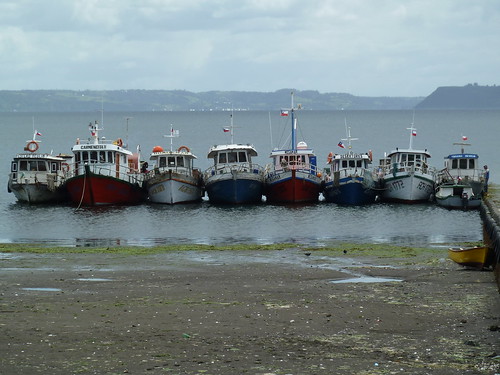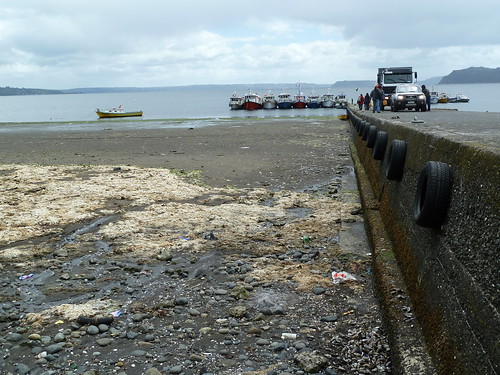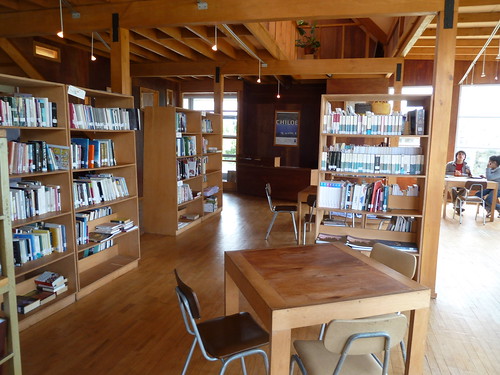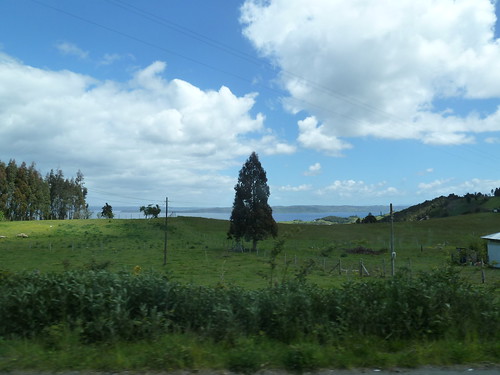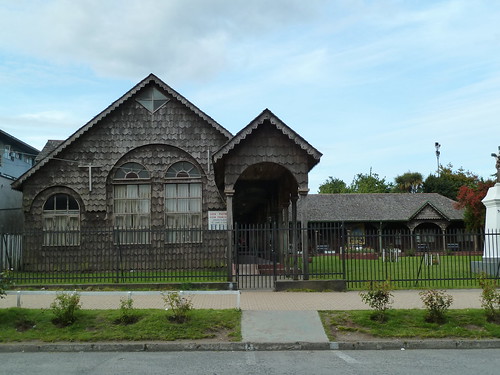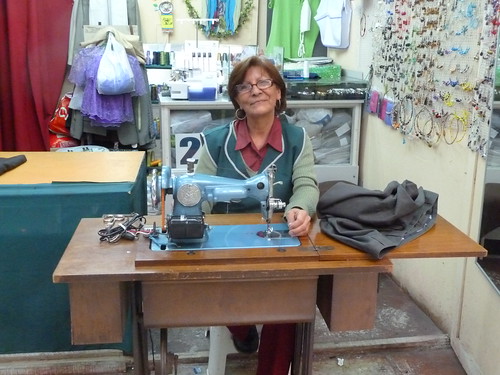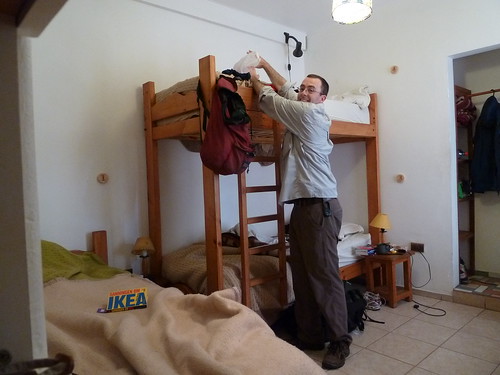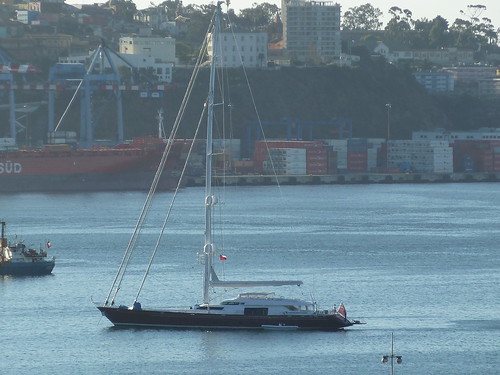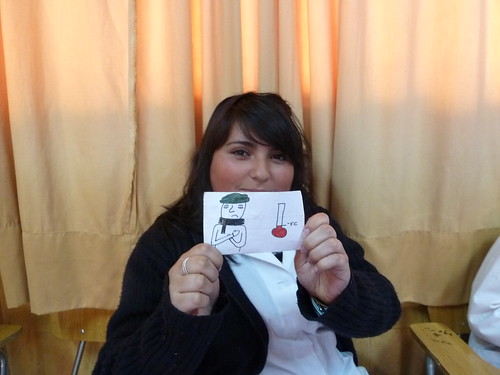I've basically been following tips from the Lonely Planet book. My main goal in my traveling is to avoid normal Chilean food: if I have to eat an empanada, charquican, carbonada, mashed potatoes with a fried egg on top, or any of the standard sandwiches, I'm doing it wrong. If I were to plan so poorly that I had to eat a completo (boiled hot dog with 5mm layers each of tomato, avocado, and mayonnaise), I should just give up and go home early. Probably I would rather go hungry.
The restaurant Años Luz listed in the book closed down a couple years ago.
Food:
- La Brújula del Cuerpo - Perilously close to normal Chilean food. I had a pizza, which was a big white bread with pizza stuff on top and a sauce that looked but did not taste suspiciously ketchup-y. Nothing else was open on Sunday night.
- Sacho - An excellent Chilote place. I had the pulmay, which was delicious, although the clams were sandy and the giant mussels turn out to be a food I'm reluctant to try, so I stuck to the regular mussels and was very happy.
- Restaurant Mar y Velas - This is actually out in Achao. I had a most excellent grilled conger eel with butter, simple and awesome.
- Don Octavio - Oh man. The "Octavio" style is your choice of fish smothered in onions/tomato/bell pepper/little bit of sausage, covered in a pile of mostly-crisp fried potatoes. It's Chilean, but...delicious? and flavorful? I'm confused. Go eat here.
- Kaweshkar - Actually a low-budget but stylish nightclub, they're open starting at noon serving drinks and food. I had a wonderful, deliciously non-Chilean real crepe with lightly sauteed vegetables and a light béchamel sauce, served with a little dish of ground smoked hot pepper (merkén) so I could season it to taste.
- Ristretto Caffe - On Blanco near the plaza, this may be the only coffee shop per se in town. Comfy tables, wifi, no power outlets. It's smoky when it's full, but the coffee doesn't suck.
Overall, it's been a solid food trip. Downtown Castro is cute and located on a small peninsula, so you can just walk 10 minutes in any of 3 directions to get a different view of the water.
Stuff To Do:
- Dalcahue - Pronounced "dal-KAH-way," this is a cute little town. I went for the artisans' market, which is smaller on a non-Sunday; I basically went, bought some naturally-dyed yarn for a friend (which I probably could have bought in Castro), took a bunch of pictures, and came back. But that was nice to do.
- Achao - Past Dalcahue on Isla Quinchao, this place is cute and has Restaurant Mar y Velas. Pictures here.
That's...actually all I did. I'm on vacation, and it's a nice place to be. Tomorrow I'm off to Ancud, where I have more ambitious plans involving penguins and a restaurant 90 minutes away.
